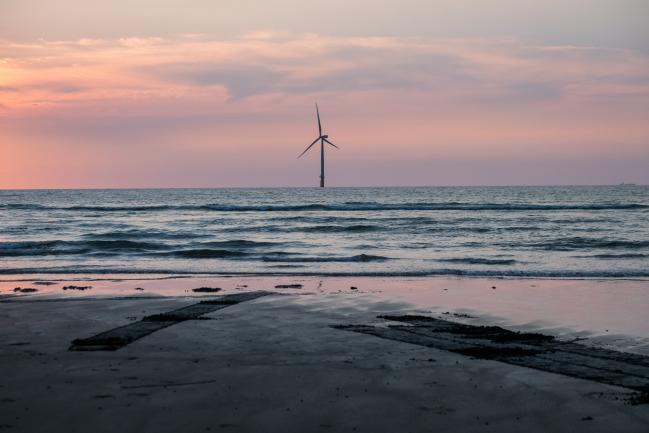(Bloomberg) -- After marking the best start in seven years, Taiwan’s booming loan market is about to get a further fillip.
Jumbo financings for offshore wind farm projects are expected to drive syndicated loan volumes this year, according to CTBC Bank. Taiwan’s bid last week to coax its business people to bring back home billions in overseas assets is set to stimulate the economy, helping to support loan demand.
“The pipeline will maintain its smooth momentum going forward,” said Phoebe Li, head of corporate finance department at CTBC Bank Co. in Taipei. The offshore wind power project plans could provide “some energy” to the syndicated loan market in the second half of the year, she said.
The Taiwan government estimates the wind power projects could draw investments of as much NT$962.5 billion ($31.2 billion) over eight years, according to a plan set in April, 2018. That could revitalize its economy threatened by the U.S.-China trade war and slowing global demand for high-tech products.
The island also earlier this year raised its rates for offshore wind power to help lure more investments. That’s good news for the syndicated loan market where borrowers from the island raised $8.1 billion during January to March to mark the best first quarter since 2012, data compiled by Bloomberg show.
Read more: Taiwan Lifts 2019 Offshore Wind Rate After Developers Push Back
Both local and foreign banks are eyeing project financings for offshore wind farms. Copenhagen Infrastructure Partners has sent out a request for proposals for a loan of up to NT$69.8 billion to back its offshore wind farm projects in Taiwan’s Changhua county.
New Impetus
Last week, Taiwan’s cabinet passed a new tax to encourage Taiwanese businessmen to repatriate assets held overseas. According to a report by UBS Group AG, Taiwanese have $500 billion in overseas assets, the third-highest offshore holdings in the world after China and the U.S. The fund repatriation could lead to more investments, hence more demand for loans.
Here’s a table showing the lending quotas Taiwanese banks obtained to extend financing at cheaper rates to entrepreneurs repatriating funds to invest in the island.
Sources: Announcements from banks, local media
Risk Ahead
As most of the renewable energy loans have yet to close, the strong loan volume so far this year has been mainly driven by overseas acquisitions from technology companies, refinancing needs, and investment from manufacturers, Mega International Commercial Bank said in a written reply to Bloomberg.
Mega International, the top arranger in the first quarter, said while the impact of the trade spat between U.S. and China will be the main uncertainty this year, there is a silver lining to it. Taiwan may benefit from trade tensions as it may ease competition between China and the island for the latter’s exports to the U.S., it said.
(Updates with tout after fifth paragraph.)
